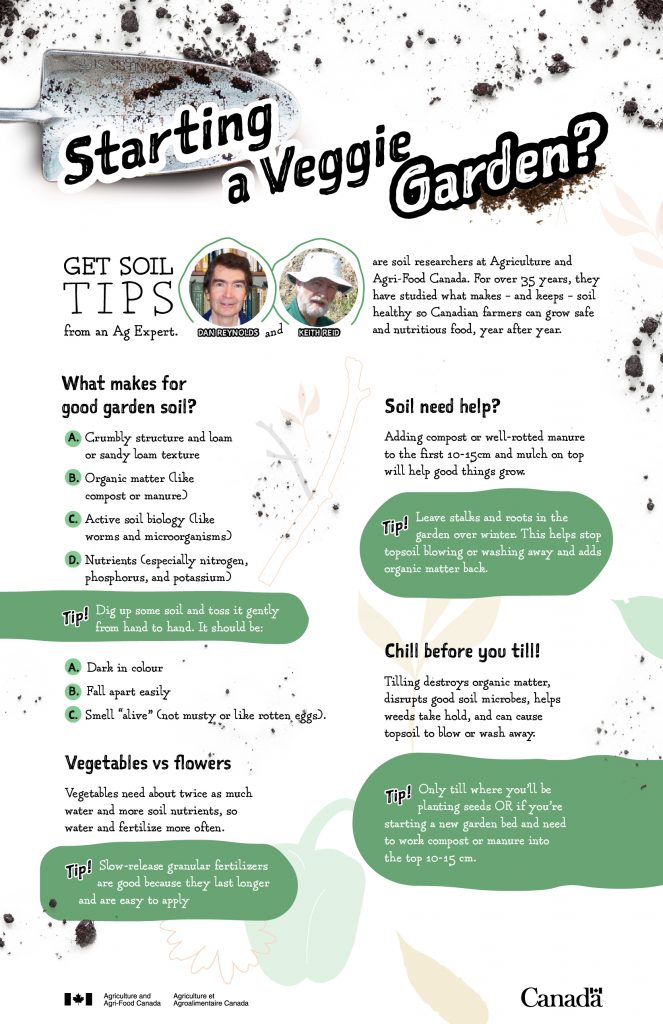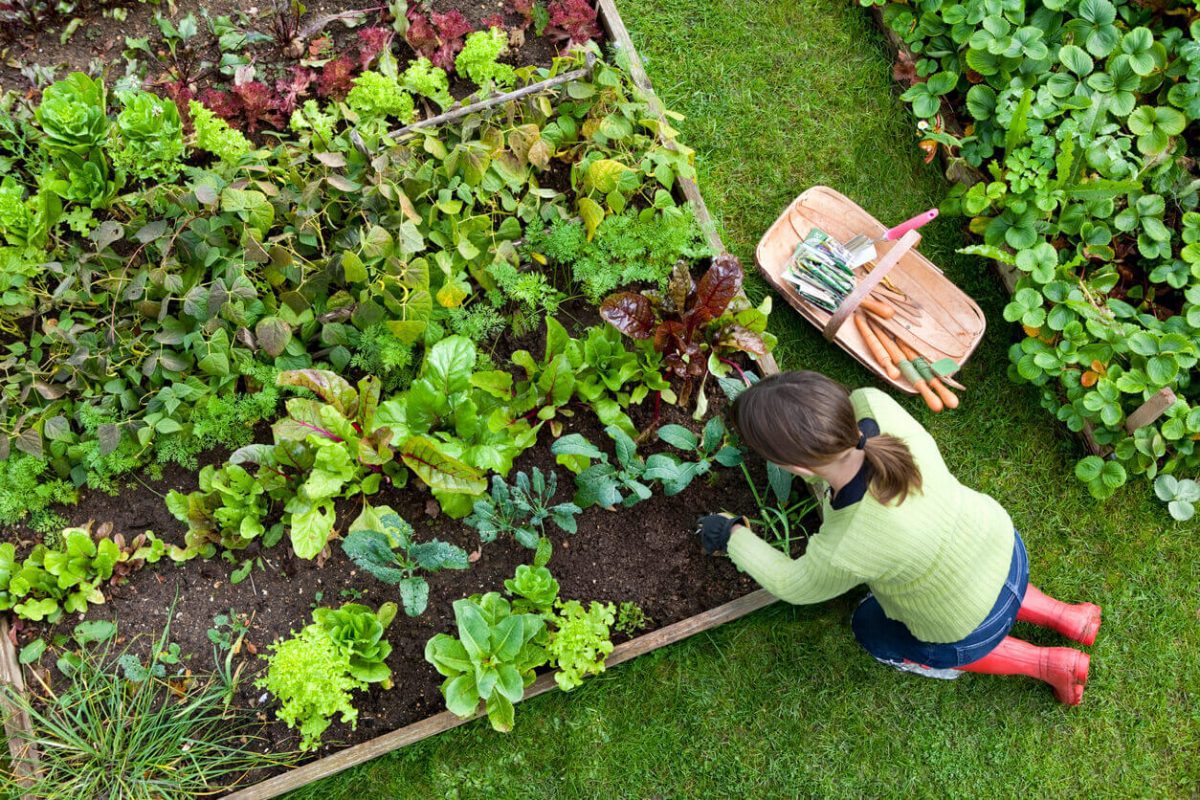With prices going through the roof and stories everywhere about food safety recalls, this is the year to growing your own garden filled with vegetables, spices and herbs.
Whether you’ve grown your own garden in the past or not, here are the top 10 reasons why you should this year:
1. GREAT TASTING FOOD!
Nothing tastes quite like fresh, homegrown vegetables and herbs. Every recipe suddenly comes to life and the flavor just explodes in your mouth. There’s no “sitting-on-the-shelf” flavor, and you just can’t compare the flavor. And if it tastes good, you and your family are much more likely to eat the vital foods your body needs.
2. SAFER FOOD.
By growing your own garden, there are no worries about contamination from the farms, manufacturing plants or during delivery. If it’s in your backyard, you control the production and everything that goes into it from start to finish.
3. BETTER HEALTH.
Tilling the soil, planting, weeding, watering and harvesting gets you outdoors, breathing fresh air and burning a few calories while you’re at it. It’s also a great way to relax and get the stress out of your mind. While you’re working up a sweat, you also know fresh-grown food is packed with nutrients, high in fiber and low in calories.
4. NUTRIENT-PACKED VEGGIES.
Studies prove that organically grown food has more much-needed vitamins and minerals than vegetables grown with synthetic pesticides. A backyard garden starts with highly nourished soil, which means more nourishment for the plants and, ultimately, our bodies.
Here are some easy-to-grow and nutritious vegetables that thrive in Canadian gardens:
- Lettuce: Varieties like leaf lettuce or romaine are quick to mature and can be continuously harvested for salads.
- Spinach: Rich in nutrients like iron and vitamins A and C, spinach grows well in cooler climates.
- Radishes: These fast-growing root vegetables are perfect for beginners and can be harvested in as little as 3-4 weeks.
- Green Beans: Both bush and pole varieties of green beans are relatively easy to grow and produce abundantly.
- Carrots: With loose, well-drained soil, carrots grow straight and sweet, providing a good source of beta-carotene.
- Zucchini: This prolific summer squash thrives in Canadian gardens and can be used in various dishes.
- Cucumbers: With ample sunlight and water, cucumbers flourish, providing hydration and vitamins.
- Peas: Peas are cool-season vegetables that are easy to grow and can be planted early in the spring.
- Tomatoes: Although they require some care, tomatoes are one of the most rewarding crops in the garden, offering a rich source of vitamins and antioxidants.
- Bell Peppers: These colorful vegetables are easy to grow and provide a good source of vitamin C.
These vegetables are not only nutritious but also relatively low-maintenance, making them ideal for beginner gardeners in Canada.
5. LESS FOOD WASTE.
Did you know the average household throws out more than $600 of produce a year? That’s nuts! Of course, you’re more likely to throw out a mushy, store-bought tomato than one you nurtured in your garden. When growing your own garden you probably won’t take it for granted. Plus, when it’s fresh, it tastes better, so it won’t go bad sitting in the vegetable bin.
6. LESS ENVIRONMENTAL IMPACT.
Believe it or not, a garden in your backyard helps the planet. Growing food without pesticides and herbicides cuts down on air and water pollution, and less fossil fuel, as there is no need to transport vegetables from across the nation or even around the world. And using a weed trimmer to keep your garden healthy by hand gets you some exercise at the same time. A proper fertilizer spreader will also ensure the correct nutrient balance in the soil.

7. A SENSE OF ACCOMPLISHMENT.
Planting seeds, nurturing them and watching them grow under your care gives you a feeling of accomplishment that’s hard to explain. It’s fun work that helps you nourish your family and maintain your health. Caring for plants is also a great way to teach kids about nature and give them a great sense of pride!
8. SAVE ENERGY.
Did you know today’s farms use more energy than any other single industry? Amazing but true. Farms eat up 12 percent of the country’s total energy supply. But you can make a difference. Growing your own garden helps cut down on overall energy use.
9. FIGHT SOIL EROSION.
Today’s farmers face the worst soil erosion in history, more than 3 billion tons of topsoil every year! Every crop grown in the backyard rather than on a commercial farm helps reduce this very real problem.
10. SAVE MONEY!
It goes without saying that we could all “squirrel away” a few extra dollars in these tough times. Growing your own garden is a great way to do that. Studies show that for every $1 you spend on seeds, gardening tools and time, you get back nearly $2 in fresh produce! That’s what I call more bang for your buck!
Here are some essential tips for beginners looking to grow a successful vegetable garden:
- Start with the right location: Choose a spot in your yard that receives at least 6-8 hours of sunlight daily. Most vegetables thrive in full sun.
- Prepare the soil: Invest time in preparing the soil before planting. Ensure it’s well-draining, loose, and rich in organic matter. Consider adding compost or aged manure to improve soil fertility.
- Select the right vegetables: As a beginner, opt for easy-to-grow vegetables like lettuce, radishes, and tomatoes. Choose varieties that are well-suited to your climate and growing season.
- Plan your layout: Sketch out a garden plan, considering factors like spacing, companion planting, and crop rotation. This will help maximize your garden’s productivity and minimize pests and diseases.
- Provide adequate water: Most vegetables require consistent moisture to thrive. Water deeply and regularly, especially during dry periods, but avoid overwatering, as it can lead to root rot.
- Mulch to conserve moisture: Apply a layer of organic mulch, such as straw or shredded leaves, around your plants to retain soil moisture, suppress weeds, and regulate soil temperature.
- Fertilize appropriately: Use organic fertilizers or compost to provide essential nutrients to your plants. Avoid over-fertilizing, as it can lead to nutrient imbalances and environmental pollution.
- Monitor for pests and diseases: Keep an eye out for signs of pests and diseases, such as chewed leaves or wilting plants. Practice good garden hygiene, like removing debris and rotating crops, to minimize problems.
- Harvest regularly: Harvest vegetables when they’re ripe to encourage continuous production. Regular harvesting also prevents overripening and encourages the plant to produce more.
- Keep learning: Gardening is a continuous learning process. Stay curious, seek advice from experienced gardeners, and don’t be afraid to experiment. Remember that every garden season offers new opportunities for growth and discovery.
By following these tips and remaining patient and attentive, even beginner gardeners can enjoy a bountiful harvest from their vegetable gardens.
In conclusion, growing your own gardenoffers a multitude of benefits, ranging from providing fresh, nutritious produce to fostering a deeper connection with nature. Beyond the satisfaction of growing your own food, vegetable gardening promotes physical activity, reduces stress, and encourages sustainable living practices. Additionally, it empowers individuals to make informed choices about their diet, leading to healthier lifestyles. Whether you have acres of land or a small balcony, the rewards of tending to a vegetable garden extend far beyond the harvest, enriching both body and mind while fostering a sense of self-sufficiency and environmental stewardship.








